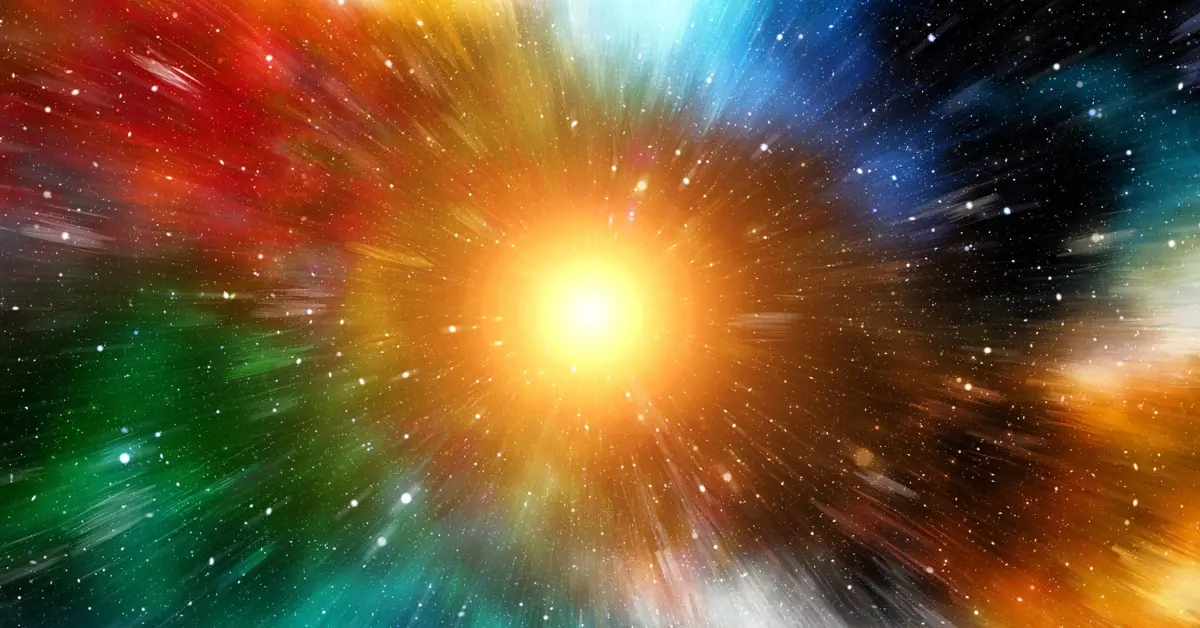Our third episode discusses the concept of the universe and some of the philosophical implications of the “Big Bang“.
Parts of the podcast audio might not quite as clear in some parts as we might like, for which we apologize. Please do listen to the episode anyway, or at least read the transcript provided below.
Episode Transcript
[Please note that this may not exactly match the audio. However, there should be no significant differences].
Dwayne
Welcome to episode three of the Metaphysics of Physics podcast. I am Dwayne Davies, your host, philosopher in chief, writer and guide through the hallowed halls of the philosophy of science.
Ashna
And I am Ashna your co-host and fellow guide. Thanks for tuning in everyone!
Dwayne
With this show, we are fighting for a more rational world, mostly by looking through the lens of the philosophy of science. We will raise awareness of issues within the philosophy of science and present alternative and rational approaches.
Ashna
Yes, and today we are going to briefly discuss the concept “universe”, the Big Bang and some of the philosophical issues surrounding these two ideas.
Dwayne
You may want to subscribe via iTunes or one of our other subscription methods. You can also follow us on Facebook and Twitter. You can do all of this from the shownotes or the media player on the website, at dwaynedavies.com.
Ok, let’s get into it.
What is the Big Bang? It is a physics theory which explains the origin of the universe as we know it.
It should be noted that despite the name of the theory, the theory does not assert that there was an explosion which created the universe. Rather, it refers to a rapid expansion. A rapid expansion of what? Rapid expansion from something known as a singularity.

Ashna
This singularity is supposed to be a point of infinite density, isn’t it? Isn’t that just nonsense? What does it mean to have infinite density? Presumably that this point had no volume?
Dwayne
Indeed. But, we are not going to dwell on this very much. We are not here to discuss the physics of the Big Bang.
Ashna
Yeah, so let’s get started with the concept of existence…
Existence exists. With that statement, I have stated the most fundamental fact that there is. Upon this statement, all cognition depends.
Now, suppose that I was to assert that there is nothing that exists. The very fact that this statement can be made, proves that something exists to make the statement. The axiom of existence is completely immune to refutation and any attempt to refute it, merely shows that it is true.
There is no alternative to this basic fact. Entities exist, and there is no way to imagine any alternative. Even were you to attempt to imagine an allegedly empty void of nothingness, the supposed perception of it requires an entity to perceive it, and something to perceive.
There is no way to perceive or think about non-existence. To perceive is to perceive something. That which does not exist cannot be perceived. There is no way to imagine non-existence. To think is to think about something.
Dwayne
Well, one can imagine all sorts of things which exist only in abstract form, but which are at least somewhat based on perceivable reality. One cannot think about non-existence. One can think only about existence and what either does or might exist. But, one cannot think about or perceive of nonexistence. There would be no it to think about, not even as an abstraction. The complete lack of existence is completely outside the realm of cognition.
There is no alternative to existence. We know that entities exist, in some form, or another. There is existence, now and forever. There is no point now, or in the past, or future, in which there is an alternative to existence.
Every entity that exists has either always existed, or, came into being as the result of the actions of other entities. There is no alternative, either it has always existed, or it came into being as a result of the actions of entities.
Ashna
Of course, this does not imply that entities can arise out of nothing. Entities which did not previously exist can come into being, but, they must be composed out of something, be it matter, energy or whatever form of existence might be permitted. The creation of an entity does not entail the creation of something out of nothing. It implies the rearrangement of existents, in such a way so that a new entity is formed.

Dwayne
Yes, for instance, this egg that I am looking at while saying this has not always existed. Mere weeks before this egg did not exist. Clearly, it did not magically pop into being from nowhere! Well, I assume not! Some hen existed, somewhere, to lay this egg. Biological processes within the hen’s body rearranged matter within its body to produce the egg.
Ashna
OK, so, through the actions of entities, new entities that did not exist previously, can come into being.
The creation of entities presupposes existence, presupposes the existence of existents to act so that new entities can come into being. Creation is a process, it is the action of entities which act so as to cause another entity to come into being. Creation presupposes and requires the existence of entities.
If there is no existence, if there are no entities, then there is nothing which can act. There can be no actions of nonexistence which then causes existence. Existence has no cause, it simply is. Cause presupposes the existence of something to act.
The creation of existence presupposes an alternative to existence and the possibility of action without entities to act. But, actions are the actions of entities, not of nonexistence.
So to sum up — Existence exists.

